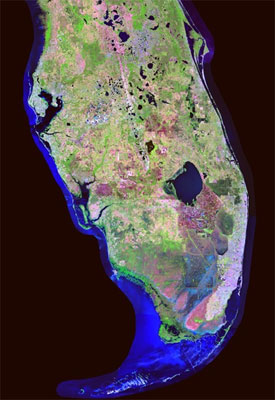Integrative Collaboration on Climate and Energy

Launched by Florida Atlantic University in the spring of 2009, ICCE is a cross-university program creating relevant linkages across disciplines. With FAU as the lead institution ICCE includes more than 80 faculty members in a multitude of climate change-related disciplines. Collectively, we have strong collaborative linkages with local, state and federal governmental and non-governmental organizations, the business community, and public. Other University collaborators include: University of South Florida, Florida Gulf Coast University, and Columbia University. Our partners provide strong support in topical and regional areas. Based on our expertise, deep community connections, and long-held partnerships, we are uniquely positioned to take research-based knowledge and apply it to practical decision-making that focuses on the needs of the region and its people. Furthermore, we know that the work of ICCE will have implications for addressing the climate change issues that will soon be faced by much of the United States and the world.
One of the most urgent issues in climate change adaptation and mitigation is the need for education and outreach on all levels. The linking of sound science with local knowledge and community decision-making provides the academic flexibility and the expertise necessary for the successful coordination and dissemination of information that can address this critical area. While there are a number of discipline specific studies and programs occurring, ICCE will specialize in the linking of these efforts, focusing attention on the complex interactions between marine systems, local economy, mandated policies and regulations, and the community issues of our region. ICCE will create an information base that will allow for adaptive management of impacts of climate change as they occur. ICCE will develop strong inter-disciplinary teams to facilitate the transfer of technical climate information to regional policy-makers, planners, engineers and the public in an adaptive management framework. Global climate model predictions will be scaled to regional models to develop climate scenarios for South Florida. Output from these local models will be used to develop "Landscape Adaptation Scenarios" by a team of urban planners, engineers, economists, educators, political scientists, and natural resource managers. Because of the current uncertainty in the rates of change and their intensity, an integrative process will be established whereby as additional scientific data are available, the landscape adaptation scenarios will be updated and modified accordingly. A forum for discussion and the development of multi-media, multi-route methods of information dissemination will be established to keep all partners and the public aware of the current findings and publications from ICCE. We know that the interdisciplinary approach, with strong central coordination, is the most promising strategy to achieve the goals of climate change adaptation and mitigation through an emphasis on stakeholder education and outreach.
ICCE Goals
- The use of the extensive knowledge base of ICCE members, partners and networks to develop unique interdisciplinary teams to advance basic and applied climate change research, linking science, social science and policy.
- The practical application of research conclusions by gathering, distilling and disseminating information about current and potential climate change impacts on south Florida and mitigation and adaptation priorities.
- Education and outreach activities in K through university, decision-makers and the business community
Contact Us
Mary Beth Hartman
(954) 236-1203
mhartman@fau.edu